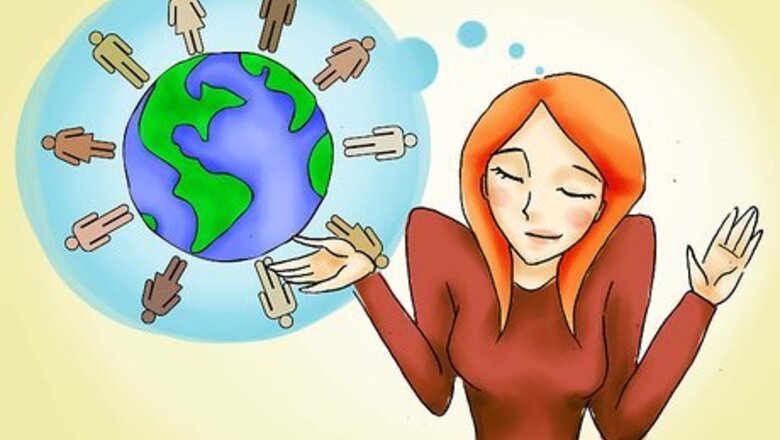
views
Accepting Yourself

Understand that the world is full of differences, and not everyone is the same. Most importantly, don't grumble if your friend is not the quintessence of your idea of perfection. Just because she is your friend, doesn't mean that she has to be what you want! Always know that you do not have to be 'perfect' to be a friend. 'Perfection' is non-existent. You just have to be kind, helpful, and trustworthy to be a good friend. Learn to love yourself, and stop comparing yourself to others. You are what you are! Love yourself for your strengths and love yourself for your weaknesses, and work on improving them. Know that as long as you do not harm anyone, as long as you behave in the way humans should behave, you are alright. Remember—you are worthy of love and acceptance!

Know that changing for the better is good. However, changing yourself completely to be accepted is not good, bad in fact. For example, if you have a spiteful nature, you might try to be not spiteful, but changing yourself completely is not good. There is a thin line between changing for the better and changing completely. You should not change yourself just for some people. Learning not to tell lies, trying to help others will not only win you more friendships, but also keep you peaceful. But, watching more movies instead of reading books which you like just to get accepted is wrong. Maintain a balance in life. You can't say, 'I will be a loner, I will not make friends, I will not change', because having friends is a must! Friendships play an important role in life. But changing yourself completely, instead of doing small amounts of both is horribly wrong! Getting accepted because you have changed yourself is crime and punishment. Changing yourself is crime, and getting accepted by someone who doesn't accept your differences is punishment!
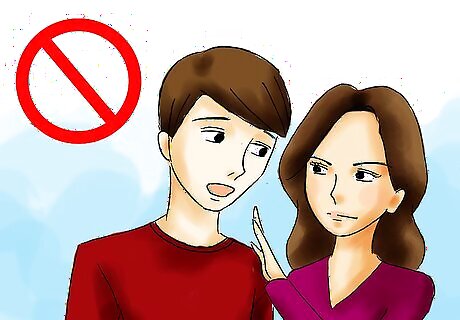
Understand that by sticking to them makes both of you uncomfortable. So being yourself and being with yourself is for the best. If they show plainly that they don't want to be friends, don't beg for friendship. However, if they welcome you pleasantly when you try to talk to them, make friends readily, but don't push it too far. You are still getting to know people! Don't stick to them like a limpet. Even if they seem friendly, maintain a distance. You don't want to scare them off! You don't want to be like a friendship-hungry person who follows the unfortunate new friend like a puppy dog.
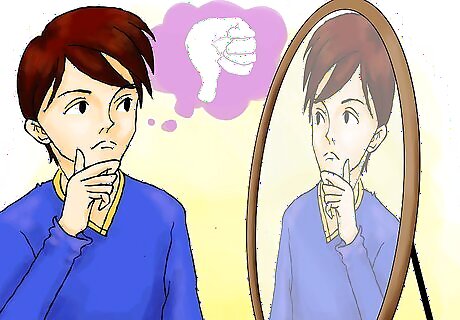
Wonder if there is any flaw within you that's making others reject you. If they are correctable, correct them, if not, leave! Be more friendly and look approachable. Having a mean look or a scowl on your face will deter most people from talking with you. Stop responding with short, curt answers when meeting new people. Ask questions about their life and stop boasting about yourself. See if you appear rude. Sometimes, when you might be preoccupied with a pressing problem and refuse to come out of your shell, you might be seen as snobbish.

Stop thinking that you are the only imperfect person present. Everyone has their own faults, as well as their own strengths. You have to learn that you are human, and not perfect, and so is everyone else. Also, stop seeing only the negative things in others. Before blaming anyone, see if you have wronged. Learn to accept blame when you deserve it. Accept your fault, and promise to not repeat it. Keep your promise, and be nicer. Do not try to blame others for your faults.

Stop using good adjectives for yourself and the bad ones for others. These adjectives have the same meaning, but are superficially different. Avoid things like, 'I am passionate about reading but my friend is obsessed with it', 'I eat healthily, but my friend lives to eat'. Here, passionate and obsessed, and eating healthily and living to eat are the same, but the adjectives used for 'I' are different. Instead, say 'we both love reading'. Avoid sounding negative if possible. Have a positive, bubbly personality. Being positive makes you more fun to be with.
Making Friends

Look neat and tidy. There is a common stereotype that disheveled looking people are unfriendly. When you look untidy, people will think unfavorably about you -you are not even bothered about yourself, why would you bother about friendships? However, avoid wearing clothes that look like you stitched them from pieces of different bed sheets, and earrings like dinner gongs. Something tasteful and elegant would suffice. Brush your hair and bathe frequently. Polish your shoes and look neat. Smell good, but don't put on perfume in such a way that people gag around you.
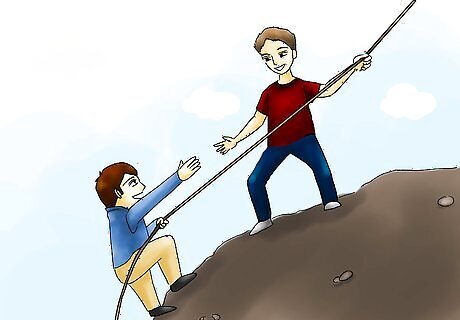
Do small favors When anyone asks you. It shows them that you are helpful. Be cheerful and accept their thanks. It puts you in a more positive light. But never feel that you have to help them. Don't be afraid to ask for help, and don't let anyone use you. Lend your notes willingly to someone who missed class, or go and help that person who is having a problem with his computer program. Make sure that you wrote good notes, and you are aware of the coding, because if you get it wrong, they will be even more angry than before.
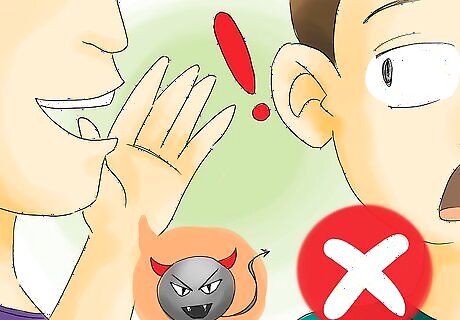
Don't gossip about them. It always gets back to them and they will desert you more than ever. If possible, don't tell them about what others gossiped about your new friends. Even though they might be happy about you telling them, you lose their respect, and they get suspicious about what you are telling about them. For if you gossip about A to B, you might gossip about B to A! Behave in a way that people will think that you are trustworthy and believable. Keep their secrets safe. Don't talk about them to anyone else, and they will respect you. Remember, being liked comes from respect!
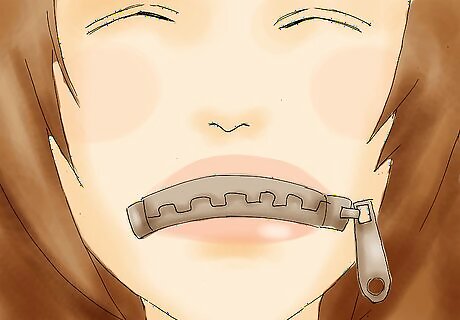
Don't be a whiner. No one likes a whiner. Even if people offer you sympathy, tell them that everything is fine. The moment someone starts talking to you, don't start telling them everything about your life starting from the hospital in which you were born, and also don't complain about your little sister. No one wants to hear your grumbles, everyone has got heaps of their own! If you really want to unburden yourself, talk about the people who mistreated you, but keep the complaint to a bare minimum, and don't put them down horribly.
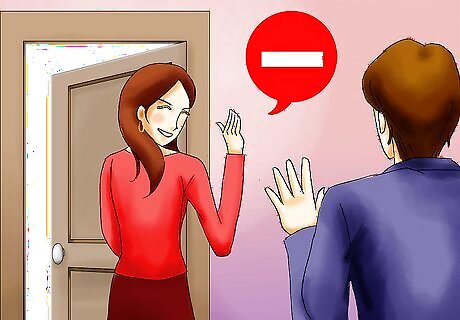
Respect their privacy. Don't keep shooting them daggers when they wish to be alone. Don't be jealous and clingy when you find them talking to other people. It just irritates them and makes them wish that they could get rid of you! If you are not clingy, and behave nicely, they will automatically prefer you! Don't follow them around They will see you as a nuisance. Talk with them, but don't disallow them from talking with others.

Compliment them. Be nice, don't just tell them that even your great-grandmother looks more stylish than them. Instead, compliment them, and start off with 'I saw an item which would look great on you' and take it from there. However, don't flatter them. There is a difference between a crisp 'this watch looks great and a gushing 'wow! This watch looks simply awesome, and it compliments your hand perfectly. You have such great taste!'.
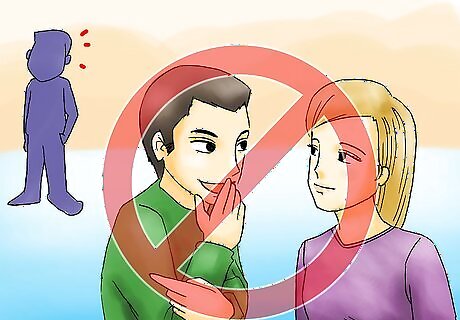
Don't tittle-tattle. When they talk about a teacher and say some bad things about him/her, don't run to that teacher with tales. It isn't very nice. Always avoid talking about other people before you are sure that your new friend won't give you away. Err on the side of caution. In fact, avoid complaining in general. Not only does it make you a whiner, it also tells them that you are not in control of your own words and emotions.
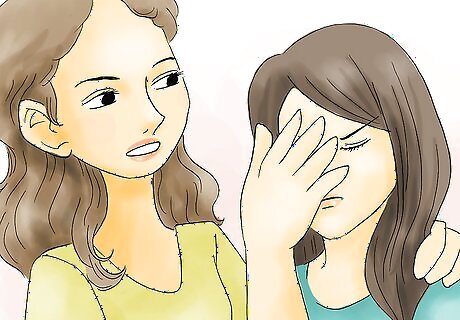
Support them when they are in difficulties. Have a tissue box ready to comfort them. Gently ease them out of suicidal thoughts and plans to do something dangerous. Just because you are their friend, doesn't mean that you have to go and help them in wrong things. Even if they are angry with you, they will be thankful later! If they tell you to get lost rudely, keep your emotions in control and head away. Never sit there, and never answer rudely. Don't let anyone insult you. Just because they were rude, you don't have to be as impolite as them. So don't let yourself be dragged down to their own level!
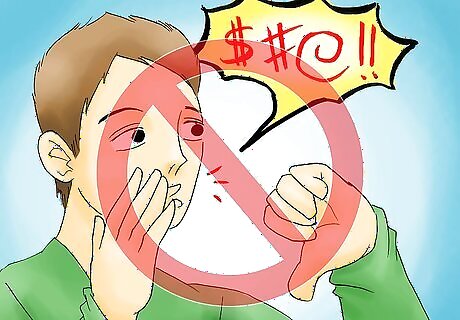
Don't use swear words. For a more descriptive guide on avoiding swear words, click here. Swearing is a disgusting habit and makes people want to distance themselves from you. If you want to tell how bad someone behaved, tell them in a formal way, not letting your emotions show in your words. Instead of saying something bad like 'that ******* is behaving like a ***** ***! Man, I hate him!', say 'he is behaving a bit badly. I don't know if he realizes this, because I don't think he wants to behave like that'.
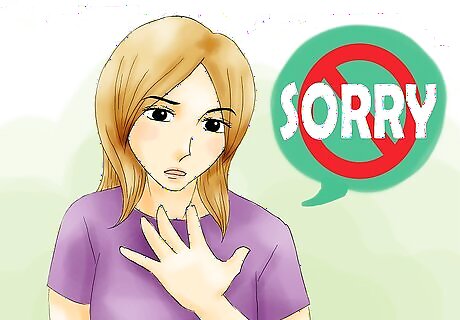
Don't feel that you have to apologize for everything! Having a dreadful, victimized expression on your face is not very encouraging for people who want to be friends with you. Look trustworthy, but not like you want to help each and everyone. Going about with a 'mama's kid' expression on your face is sloppy and unprofessional. Don't apologize for everything and everyone. You should have some self-respect, and over-apologizing damages it.
Avoiding Fake Friendships
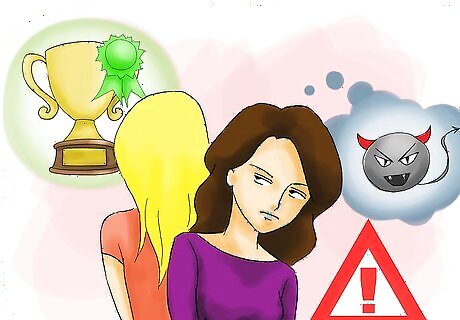
Beware of some people's motives. If a person suddenly wants to be friends, you might be drawn into it. Be careful of people using you because of your talent, intellectual abilities, etc. When friendships of these kinds end (they always do), you'll be more drawn into yourself and more shy and awkward! You'll also hurt your confidence and feelings! Don't behave like some friend-deprived person! People will want to use you if they are certain that you will do anything for friendship.
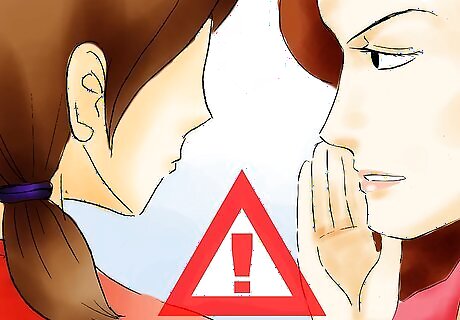
Be careful before letting your friend in on your secrets. These 'friends' may blab about it to everyone. In fact, always avoid telling close secrets to anyone! You never know how things will change. Avoid sharing passwords with them, your new friend might hack your account and send your connections rude messages.

Identify Bad Friends. Most of these kind of friendships originate from a desire to use you, get all the help they want form you, and finally, get rid of you when you start questioning. See if they always want help from you, but make some excuse when you request a favor from them. These friends see you as a ready made help machine, and want to use you to the fullest potential. Decline requests as politely as you can. Learning to gently distance friends from you. Ditching bad friends is important sometimes.
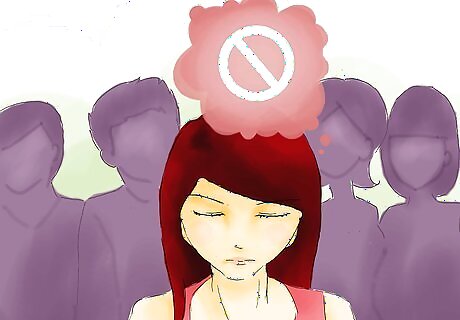
Gently distance yourself from them. Don't make it obvious, but keep them at arm's length. If it is very noticeable, they will see this and treat you badly. Lessen your interaction with people, and if these fake friends question why you are not talking to them, go all dramatic and tell them that you are not preparing hard enough at the moment, you are undergoing a lot of stress, and you do not have the time to talk. That's why you have to stop talking with everyone.
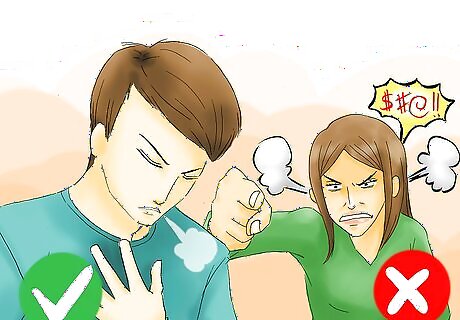
Avoid huge, emotional outbursts. It just makes you look like a person who can't keep their emotions in control. Avoid confronting them about their behavior, as they might turn aggressive. Do your business, even though you are feeling very torn up inside. Regardless of how they treated you, never give away their secrets to others. Not only is it bad, they might give you away!
Handling Rejection
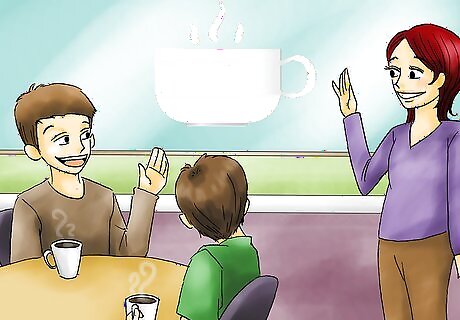
Don't cut off yourself completely, have some acquaintances, however fake. Who knows, it might blossom into a close friendship! Speak with others, but never be afraid of friendships. Just because one particular group was unpleasant, does not mean everyone is like that. However, don't go and cry on their shoulder because you badly want to have friends. You may not know how these people are either!
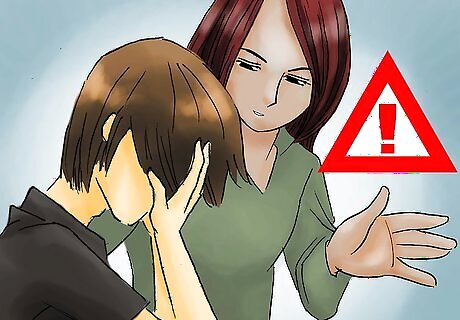
Never try to make friends out of sympathy! Maintain that acquaintance, but be aware that they didn't make friends out of pity. If someone comes and starts talking with you out of the blue, be aware that they were sorry for you. Most of the time, these people will leave you as soon as you get friends.
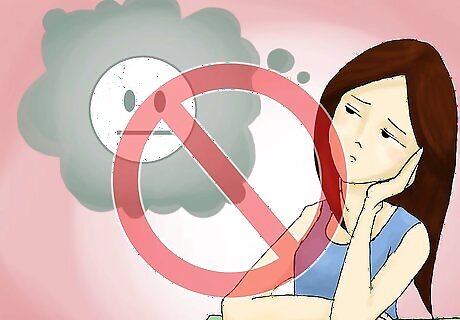
Don't feel as if you are useless. Just because some people did not want to be friendly with you, don't feel useless. They don't respect your differences. If you are here, you have a reason to be here. Think about happy, comforting thoughts and feel proud of yourself for not letting rejection damage you! Think about your good qualities, and feel happy. there is no reason why you should cry over people who rejected you!

Be with people who like you for who you are. They will comfort you and draw you out of your shell. Talk with your parents who will always love you, no matter what, and let them help you move on. Never think 'I am so bad, no one wants to be friends with me' and things along those lines. You should not feel ashamed as you don't have anything to be ashamed of!

Regain your confidence. Show them that they are not indispensable, and that you can live without them. However, don't take 'revenge' and try to defame them or hurt them. Remember, the best revenge is letting them see you get on with your life better than before. Also, don't dwell on your past, and move on from the rejection you faced. Stop thinking about those people. To truly be confident and comfortable in your own skin, you need to realize that you're worthy of love, and that you're safe and free to be who you are.
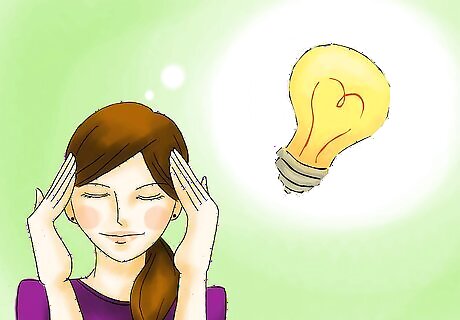
Emerge from this as a wiser person. Be more careful about friendships. Be positive about the future, but never let optimism take over your common sense. Being positive doesn't mean that you go and make friends with every person you set your eyes on. Don't be more awkward after this. Instead, be more practical and careful about any kind of relation you have with others in the society.




















Comments
0 comment